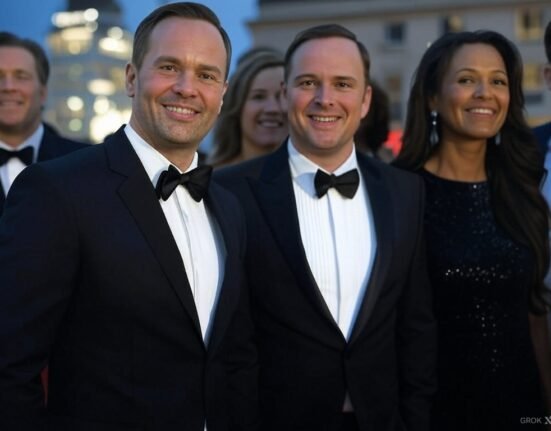The quest for a universal cure—an all-encompassing treatment that promises to heal every form of illness—has captivated humanity for centuries. Historically, various cultures have sought remedies that could alleviate diverse health concerns with singular simplicity. Ancient civilizations, from the Egyptians to the Greeks, have documented their explorations of holistic healing methods that they believed held the keys to universal wellness. These early examples range from herbal concoctions to spiritual practices aimed at restoring the body’s natural balance, each reflecting the time’s understanding of health and disease.
In the modern context, this concept has evolved alongside remarkable advancements in medical science. The development of antibiotics in the 20th century, for instance, presented the possibility of eradicating bacterial infections with a single medication. Vaccination protocols further exemplify this notion, as they have enabled public health systems to combat deadly diseases like polio and smallpox effectively. However, the idea of a singular cure that addresses the vast array of ailments remains tantalizing yet elusive. Contemporary medicine recognizes the complexity of diseases which often are multifactorial, leading to an acknowledgment that a one-size-fits-all solution could oversimplify the intricacies of the human body.
Moreover, as we navigate through the intricate landscape of personalized medicine, where treatments are tailored to individual genetic makeups and health conditions, the appeal of a universal medicine often resurfaces in public discourse. The conversations surrounding such innovative treatments can evoke hope, yet they can also introduce ethical and practical dilemmas. How do we define “cure”? What implications do such a medicine pose for pharmaceutical innovation and healthcare accessibility? As we explore these questions, it is essential to consider both the historical perspectives and modern advancements that frame our understanding of what a universal cure entails.
The Complexity of Human Illnesses
The concept of a universal cure for all illnesses is appealing, yet human diseases exhibit a remarkable complexity that complicates such aspirations. Illnesses can be categorized based on a variety of factors, including genetic predispositions, environmental influences, and lifestyle choices. This multifaceted nature underlines the individuality of each disease and the necessity for personalized treatment approaches.
Genetic factors play a significant role in the development of many illnesses. For instance, hereditary conditions such as cystic fibrosis or sickle cell anemia arise due to specific genetic mutations passed down from parents to offspring. Each individual possesses a unique genetic makeup that may influence their susceptibility to various conditions, thus necessitating tailored therapies to address their genetic abnormalities effectively.
Environmental factors also contribute to the overall health of an individual. External elements such as exposure to pollutants, occupational hazards, and lifestyle choices like diet and exercise can profoundly impact one’s health. For example, an individual living in an area with high pollution levels may be more prone to respiratory diseases, while another with a sedentary lifestyle could experience obesity-related illnesses. These factors highlight the need for a nuanced understanding of each patient’s circumstances when diagnosing and treating diseases.
Furthermore, the interplay between lifestyle choices and health cannot be overstated. Decisions regarding nutrition, physical activity, and stress management significantly affect one’s well-being and can lead to the onset of chronic conditions or debilitating diseases. These lifestyle variations contribute to the complexity of illnesses, proving that a singular solution is inadequate for the broad spectrum of health issues faced by humanity.
Ultimately, the intricacies of human illnesses suggest that a universal cure, while an attractive idea, may not be feasible due to the unique combination of genetic, environmental, and lifestyle factors in each individual. Tailored interventions targeted to specific illnesses are vital for effective treatment and sustaining overall health.
Historical Attempts at Finding a Panacea
The quest for a universal cure, or a panacea, has intrigued humanity for centuries. One of the most notable historical pursuits in this regard was the search for the Philosopher’s Stone, a legendary substance believed to transform base metals into gold and grant eternal life. Alchemists in ancient and medieval times dedicated their lives to discovering this elusive stone, which they hoped would result in the ultimate elixir of life. The allure of such a remedy captured the imagination of scholars and laypeople alike, leading to numerous experiments and explorations that significantly influenced the development of early chemistry and medicine.
In addition to the Philosopher’s Stone, various cultures have sought after elixirs of life, each promoting the promise of health and immortality. For example, in Chinese mythology, the quest for a potion that could grant longevity inspired numerous expeditions and the study of herbal remedies. Similar pursuits existed globally, with many cultures exploring the properties of plants and minerals in hopes of finding a cure-all mixture. However, these efforts often resulted in pseudoscientific practices and misinformation, highlighting the dangers surrounding the uncritical embrace of miraculous claims.
Although many of these historical attempts were based on misconceptions and magical thinking, they reflected humanity’s enduring desire for a singular remedy. The pursuit of a universal cure not only shaped medical theories but also influenced societal values regarding health and wellness. Many of these endeavors served as a precursor to modern pharmacology, which ultimately focuses on targeted treatments rather than a catch-all solution. As a result, the historical attempts at finding a panacea offer an essential perspective on how the allure of a single remedy continues to resonate in contemporary society.
Modern Advances in Medicine: Progress Towards a Cure-all?
The field of medicine has witnessed remarkable advancements in recent years, significantly improving how we treat various diseases and conditions. Innovations such as gene therapy, immunotherapy, and personalized medicine represent the forefront of these developments. These methods are shifting the focus from traditional one-size-fits-all approaches to more tailored strategies that target specific ailments and patient needs.
Gene therapy, for instance, aims to correct or replace faulty genes responsible for disease development. By inserting therapeutic genes into a person’s cells, it has shown promise in treating conditions like certain genetic disorders and cancers. This approach marks a pivotal shift towards addressing the root causes of illnesses, providing hope for patients suffering from ailments previously deemed untreatable.
Similarly, immunotherapy, which harnesses the body’s immune system to fight cancer, has transformed the treatment landscape for many cancer patients. By utilizing techniques that enhance immune response against malignant cells, it offers a powerful alternative to traditional methods such as chemotherapy and radiation. While immunotherapy has achieved encouraging results, not all patients respond, demonstrating the need for ongoing research aimed at improving its efficacy.
Personalized medicine further exemplifies the shift towards targeted therapies. This approach involves tailoring medical treatment to the individual characteristics of each patient, often based on genetic, environmental, and lifestyle factors. By doing so, healthcare providers can devise more effective treatment plans that consider a patient’s unique profile, leading to improved outcomes.
Despite these significant strides, the concept of a universal cure remains elusive. While we are moving closer to more effective and individualized treatments, the complexities of human biology and the diverse nature of diseases underscore the importance of continued innovation in targeted therapies. Current advancements may not achieve the notion of a one-size-fits-all solution, yet they lay the groundwork for more promising futures in medical treatment.
Ethical Considerations and Risks
The quest for a universal cure, a single medicine capable of healing all ailments, raises significant ethical considerations and potential risks that cannot be overlooked. Primarily, the over-reliance on such a treatment presents a fundamental concern. If society were to embrace a singular, overarching solution for health issues, it could diminish the emphasis placed on individual assessment and tailored treatments. A patient’s medical history, unique genetic makeup, and lifestyle factors often dictate the most effective treatment. Relying solely on a universal medicine could lead to generalized care that fails to address these crucial nuances.
Moreover, the introduction of a universal cure could have detrimental effects on preventative care. Preventative measures, such as vaccinations and lifestyle modifications, emphasize long-term health over symptomatic relief. The expectation that one medication could resolve a variety of ailments might contribute to a decline in the motivation for such preventative practices. This shift could paradoxically lead to a rise in neglected health conditions that a universal drug is not designed to address, thus posing further risks to public health.
Additionally, the societal implications of a universal cure could exacerbate existing inequities in healthcare access. If a single medication were developed, questions of distribution and affordability would arise. Historically, groundbreaking medicines have often been inaccessible to marginalized groups, leading to disparities in health outcomes. The potential for a universal cure to become a commodified product raises concerns about its availability based on socio-economic status rather than medical need, perpetuating inequities rather than resolving them.
Thus, while the idea of a universal cure is undeniably appealing, the ethical implications and risks associated are complex and multifaceted, necessitating careful examination and consideration.
The Role of Placebo Effect in Medicine
The placebo effect plays a significant role in the landscape of healthcare, demonstrating the intricate relationship between psychological processes and physiological outcomes. This phenomenon occurs when a patient experiences a perceived improvement in their condition after receiving a treatment with no inherent therapeutic value, such as a sugar pill or saline injection. The belief that one is receiving an effective treatment can trigger real biological responses, illustrating the power of the mind in the healing process. Research indicates that the placebo effect can alter neurotransmitter levels, stimulate the release of endorphins, and even modify immune system responses, underscoring its relevance in medical practice.
In the context of the quest for a universal cure, the potential influence of the placebo effect becomes particularly compelling. If individuals believe that a universal medicine has the capacity to heal all ailments, their expectations may significantly enhance the treatment’s efficacy. This highlights the ethical and practical implications of promoting such a remedy. The belief in a cure can lead to positive health outcomes, even if the treatment itself does not possess the capability to address the specific condition. Therefore, understanding the nuances of the placebo effect is essential for comprehensively evaluating any claims regarding a universal treatment.
Moreover, the mind-body connection plays a crucial role in health and healing. Emphasizing this connection allows for a more holistic approach to medicine, acknowledging that mental and emotional states can impact physical health. This perspective fosters a greater appreciation for the psychological factors influencing treatment efficacy. Consequently, when discussing a universal cure, it is vital to consider both the potential biological effects of the medicine and the psychological context in which it is administered. The interplay between belief, expectation, and health outcomes is fundamental for realizing the full potential of any proposed universal medicine.
Current Research and Future Possibilities
The pursuit of a universal cure has been a longstanding aspiration within the field of medicine. Ongoing research indicates an exciting shift towards achieving this goal, as scientists explore innovative therapies and novel approaches. One prominent area of investigation involves gene therapy, which holds promise in correcting genetic disorders at their source. Techniques such as CRISPR-Cas9 allow for precise modifications to DNA, potentially enabling the treatment of conditions that were previously deemed incurable.
Moreover, advancements in immunotherapy are opening avenues for tackling a range of diseases, including various forms of cancer. By harnessing the body’s immune system, researchers are developing treatments that enhance the immune response againstmalignant cells, thereby improving patient outcomes. Notable examples include CAR T-cell therapy, which has demonstrated remarkable success in certain hematological malignancies and is being adapted for solid tumors.
In addition to these approaches, the integration of artificial intelligence (AI) and machine learning into drug discovery is revolutionizing the field. These technologies streamline the identification of potential candidates for universal therapies, enabling researchers to analyze vast datasets efficiently. For instance, AI algorithms can predict molecular interactions and optimize compounds, accelerating the development of new medicines.
Furthermore, the exploration of multifunctional drugs, which target multiple pathways of disease simultaneously, shows promise for treating complex conditions such as metabolic syndrome and autoimmune diseases. These agents, designed to tackle several aspects of a condition at once, could potentially lead to more effective treatment regimens.
While considerable progress is being made, it is essential to maintain a cautious optimism regarding the quest for a universal cure. Challenges such as regulatory hurdles, ethical considerations, and the variability of individual responses to treatment remain at the forefront of medical research. However, the synergy of innovative therapies and technology may indeed hold the key to revolutionizing healthcare and inching closer to the ideal of a universal remedy for all illnesses.
Real-life Testimonials and Case Studies
In the ever-evolving landscape of medicine, numerous patients have come forward with personal accounts that suggest the possibility of miraculous recoveries facilitated by a single treatment. These testimonials often captivate audiences, leading many to ponder whether one universal cure could exist. For instance, consider the story of Jane, a 45-year-old woman diagnosed with rheumatoid arthritis who experienced debilitating pain for over a decade. After being introduced to a novel biologic treatment, she reported a dramatic improvement in her symptoms, asserting that she felt as if she had reclaimed her life. Such narratives foster the belief in a medicine capable of addressing multiple ailments, as they underscore impressive recoveries from chronic conditions.
Similarly, the case of Tom, a long-term diabetic struggling with neuropathy, warrants attention. Following the introduction of a new medication into his treatment regimen, Tom noted a significant reduction in his symptoms, prompting him to share his success story widely. This resonates with the notion that one therapy could serve as a panacea for various health issues. However, these testimonials often lack broader context. While individual cases of recovery are compelling, they must be examined within a framework that considers variances in medical response, treatment regimens, and the role of lifestyle changes.
Moreover, exploring the nuances behind these cases reveals complexities that challenge the concept of a universal cure. The efficacy of treatments can be influenced by numerous factors, including genetics, underlying health conditions, and adherence to prescribed therapies. Hence, while stories of recovery are inspiring, they also highlight the importance of caution in deducing general conclusions from isolated instances. Testimonials can be powerful; yet, they underscore the necessity of ongoing research and clinical trials to discern the true potential of any medicine in addressing a wide array of illnesses.
Conclusion: The Future of Medicine and the Myth of the Universal Cure
The quest for a universal cure remains a compelling topic within the medical community. Throughout history, the allure of a single medication capable of healing all ailments has driven research, inspired advances in pharmacology, and sparked endless debate among health professionals. However, the reality of modern medicine illustrates a picture that is significantly more intricate, shaped by individual patient needs, varying disease mechanisms, and the limitations of current treatment modalities.
It is essential to recognize that while the concept of a universal cure is appealing, it overlooks the complex interactions of genetic, environmental, and lifestyle factors that contribute to health and disease. Each patient presents a unique clinical picture, which means that treatment approaches must be tailored to address specific conditions rather than adhering to a one-size-fits-all solution. As research continues to advance, a more nuanced understanding of diseases is emerging, highlighting the importance of personalized medicine as a critical component of future healthcare strategies.
Moreover, embracing a holistic approach to health—one that incorporates preventive measures, lifestyle modifications, and alternative therapies—can provide patients with a more comprehensive pathway to wellness. This paradigm shift underscores the realization that true healing extends beyond the capability of any single medicine. Instead, a combination of multidisciplinary strategies will likely yield the most promising outcomes. By fostering collaboration between various fields, including technology, nutrition, and mental health, the healthcare sector can better support individuals on their journeys toward optimal health.
In conclusion, while the dream of a universal cure continues to captivate our imaginations, it is crucial to acknowledge the complexity of medicine and the importance of individualized care. This perspective is not only vital for patient outcomes but also essential for the continued evolution of effective treatment protocols in a rapidly advancing medical landscape.













Leave feedback about this